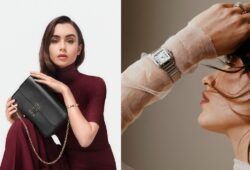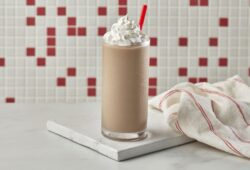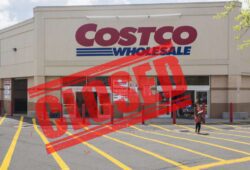-
Dylan Mulvaney has some 10.8 million TikTok followers.
-
Anheuser-Busch owns about 630 beer brands in 150 countries.
-
While inclusivity and diversity are important values, companies must be careful not to alienate their core audience in the process.
Anheuser-Busch, the world’s largest brewer, launched a patriotic advertisement with its iconic Clydesdale horse image as a way of winning back the audience that was angered by its endorsement deal with transgender activist Dylan Mulvaney. The advertisement, which was released on social media, didn’t mention Mulvaney or issue an apology but emphasized the American spirit.
The CEO of Anheuser-Busch released a statement but didn’t mention Mulvaney or the controversy directly. The statement also didn’t address reports of boycotts or distributors being worried about low sales. Bud Light is generally targeted towards “blue-collar workers and younger adults that are 25 to 29 years old” and the Mulvaney campaign could be problematic for the company. The controversy sparked divisive reactions online, leading some conservative consumers to call for boycotts. PR and communications professionals have weighed in on what Anheuser-Busch could have done differently and how Bud Light’s image will fare as it attempts to recover its right-wing appeal.
Anheuser-Busch, the world’s largest brewer, recently launched a new patriotic advertisement as a way of winning back the audience that was angered by its endorsement deal with transgender activist Dylan Mulvaney. The advertisement features the company’s iconic Clydesdale horse image walking past the Grand Canyon, New York City, and other landmarks. It emphasized the American spirit and didn’t mention Mulvaney or issue an apology. The advertisement was released on social media and drew significant engagement on Twitter, with most of it being negative.
— Budweiser (@budweiserusa) April 14, 2023
Anheuser-Busch owns Budweiser, Bud Light, Michelob, Stella Artois, Beck’s, and a number of other brands. The company owns about 630 beer brands in 150 countries. The controversy arose when Bud Light teamed up with Dylan Mulvaney for an NCAA March Madness sweepstakes. The transgender influencer has some 10.8 million TikTok followers and the partnership sparked divisive reactions online, leading some conservative consumers to call for boycotts. Country music singer John Rich, singer Travis Tritt, rocker Kid Rock, and others also called for boycotts against Bud Light. A number of analysts and industry experts questioned why Bud Light chose Mulvaney as a partner, saying the move would be repellent to the beer’s consumer base. Some Bud Light and Anheuser-Busch distributors around the country have expressed alarm over the deal, with one report saying that a number of bars have refused to serve Bud Light. Country singer and Nashville bar owner John Rich told Fox News that his bar won’t sell the beer.
Ted Jenkin, CEO of Oxygen Financial, said he didn’t understand why Bud Light hired Mulvaney for marketing. “I mean, if your target customer is Kid Rock, and then all of a sudden you decide to go to RuPaul, that just doesn’t make any sense at all.” Since Bud Light generally goes after “blue-collar workers and younger adults that are 25 to 29 years old,” the Mulvaney campaign could be problematic for the company. “So, I don’t think that this one campaign is going to colossally destroy the brand,” Jenkin said.
The controversy prompted Anheuser-Busch to issue a statement, although the company did not address Mulvaney or the controversy directly. The statement also did not address reports of boycotts or distributors being worried about low sales. “We never intended to be part of a discussion that divides people,” Anheuser-Busch InBev CEO Brendan Whitworth said in a press release.
“We are in the business of bringing people together over a beer. I care deeply about this country, this company, our brands, and our partners”.
— Anheuser-Busch (@AnheuserBusch) April 14, 2023
PR crisis for Anheuser-Busch?
PR and communications professionals weigh in on what Anheuser-Busch could have done differently and how Bud Light’s image will fare as it attempts to recover its right-wing appeal.
Recovery Plan
To recover its right-wing appeal, some experts suggest that Anheuser-Busch should consider a different approach. The company could focus on highlighting its American roots and values, which could resonate with its target audience.
“Bud Light could focus on their American heritage and play up their Made in America story, rather than trying to be overly inclusive,” said public relations and communications expert Leslie Baehr.
“They could also do more work with veterans or other groups that promote patriotism.”
Others suggest that Bud Light should distance itself from politics altogether and focus on its core values of bringing people together over a beer.
“Anheuser-Busch could avoid making any political statements and instead focus on the social and cultural aspect of beer,” said marketing consultant John Harrison. “Beer has been bringing people together for centuries, and that’s something that everyone can relate to.”
Another strategy that Anheuser-Busch could consider is partnering with influencers that align more closely with its target audience. This could help the company avoid backlash from consumers who don’t share the same values as its influencers.
“Anheuser-Busch could partner with influencers that are more in line with their target demographic, such as country music stars or NASCAR drivers,” said Harrison. “These influencers are more likely to resonate with the right-wing audience that Bud Light is trying to reach.”
Final Thoughts
The Bud Light and Dylan Mulvaney controversy highlights the challenges that companies face when trying to appeal to a diverse consumer base. While inclusivity and diversity are important values, companies must be careful not to alienate their core audience in the process.
Anheuser-Busch’s new patriotic advertisement is an attempt to win back its right-wing audience after the Mulvaney controversy. While the ad has received mixed reactions on social media, it remains to be seen whether it will be enough to repair the damage to Bud Light’s image.
Moving forward, Anheuser-Busch must carefully consider its messaging and partnerships to avoid further backlash from consumers. By focusing on its American roots and values, and partnering with influencers that align with its target audience, the company may be able to recover its right-wing appeal and continue to grow its business.
You Must Read Articles:
-
Samsung’s Shocking Move: Leaving Google for Bing? What You Need to Know Now!
-
Does Uber charge you more when your phone battery is low?
-
Ticketmaster Troubles: Fans Outraged Over High Prices, Refund Issues, and Legal Battles
-
Play for Skateistan: How Gaming and Community Empower At-Risk Children Worldwide










